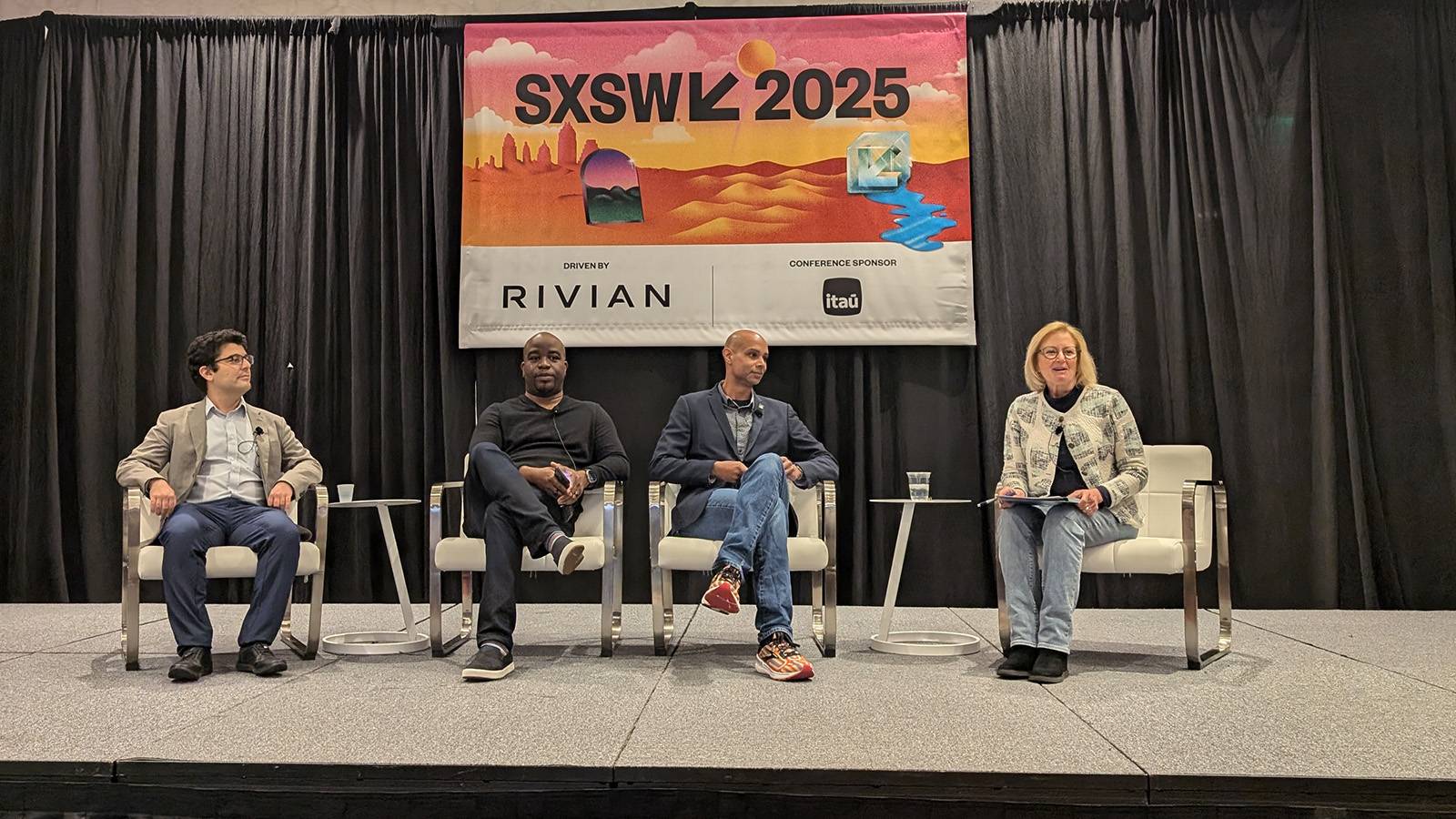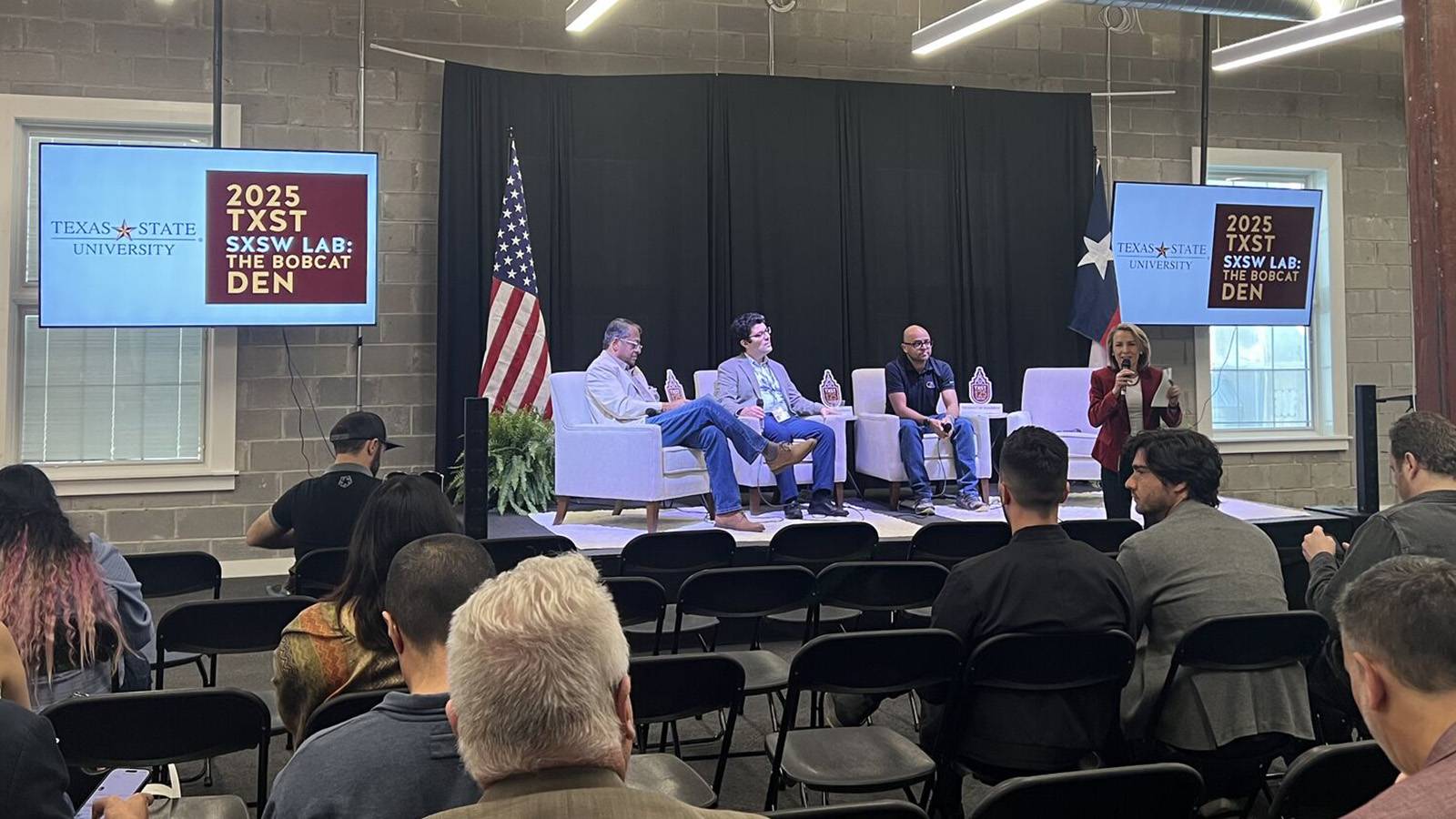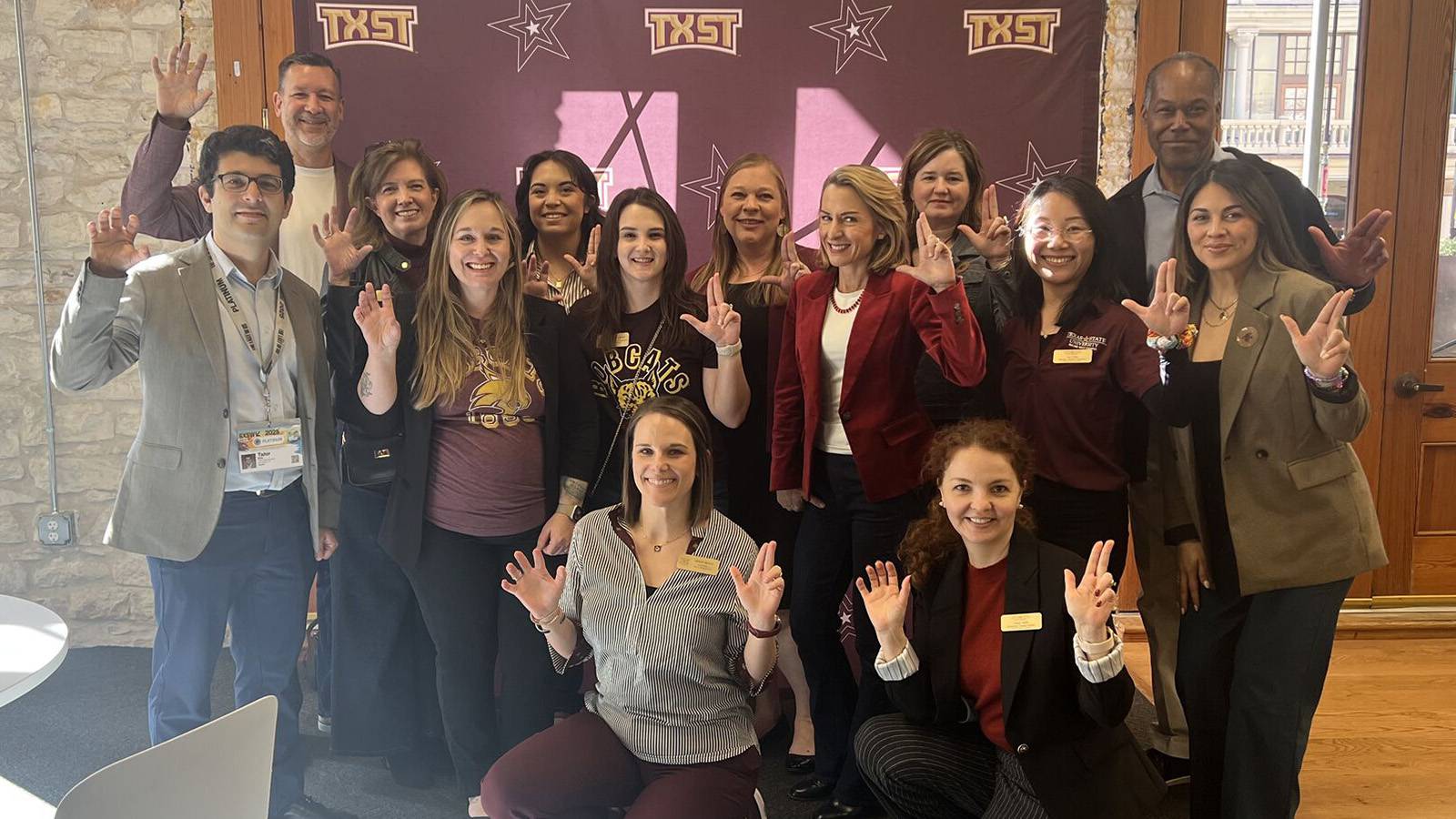Dr. Tahir Ekin Leads Texas State AI Conversation at SXSW
April 10, 2025

By Vallie Figueroa
Communications Specialist
McCoy College of Business
SAN MARCOS, Texas—As the conversation around artificial intelligence (AI) quickly progresses, Dr. Tahir Ekin, Fields Chair in Business Analytics at Texas State University's McCoy College of Business, is leading efforts to ensure the university is part of that conversation and prepared for AI's impact.
Ekin joined other AI industry experts for a panel session at this year's South by Southwest (SXSW) conference to discuss the benefits, risks, and ethical considerations surrounding synthetic data — artificially generated data that replicates and, in some cases, substitutes real-world data for analysis, training, and testing purposes — in AI applications. The "Impact of Simulated Data on AI and the Future" session was held on March 9, at the Hilton Downtown Austin.
Moderated by Dr. Jana Minifie, program director of the Faculty Innovation Accelerator at McCoy College, the panel included Ekin, who is also the director for Texas State's Center for Analytics and Data Science (CADS), Mike Hollinger of NVIDIA, and Oji Udezue, an experienced product leader and author who has worked for Twitter and Calendly.
The panelists offered nuanced insights and explored how synthetic data can fill gaps where real-world data is limited or inaccessible.
"It's simply artificially generated data that mimics somewhat real-world behavior, and it helps us to train algorithms and come up with AI-based solutions where situations are either too private, too rare, or sometimes too dangerous to operate in to get those real-world insights," Ekin said at the conference. “It has especially profound implications in some areas like healthcare, finance, and productization.”
Panelists also pointed out the cost-effectiveness of using synthetic data, such as in simulating vehicle crashes or training self-driving cars to recognize and respond to rare or unpredictable real-world scenarios that may occur on the road.
While the panel acknowledged the immense potential of synthetic data in driving AI solutions, Ekin warned that its use must remain grounded in real-world dynamics.
"One of the challenges is when you are utilizing simulated data in a sense that is not grounded in real-world data," Ekin said at the conference. "Then you may not be able to capture the real world diversity. We need to be careful. We still need to ground them in real-world data."
For Ekin, the conversation at SXSW was more than a demonstration of emerging technologies — it was a call for broader participation.
"It was important for us to be in the discussion to help all the stakeholders create responsible data science and AI solutions," he said in a follow-up interview. “Everything is moving so quickly that it's sometimes hard to keep up — and even harder to bring the community, the people who will actually use these tools, along with us.”
Ekin continued: “Simulated data is one of those things that can influence our daily lives without us even realizing it. What I was trying to highlight in the discussion is that earning people’s trust — and ensuring they can use these tools safely — really depends on transparency and our ability to educate them.”
Ekin also participated in panel sessions at the university's SXSW activation, The Bobcat Den, showcasing Texas State's research, student innovation, and industry collaborations. Held alongside the main conference, it provided a platform for faculty and students to engage with industry leaders, investors, and entrepreneurs. As CADS’s director, Ekin helped lead two AI-themed panels focused on infrastructure and real-world applications.
“It’s important for us to stay vigilant and proactive in remaining part of the conversation,” Ekin said.

Ekin said that through CADS, he is working on various initiatives to maintain the university’s presence in the AI space including its membership with Austin AI Alliance, which, according to its website, “brings together companies, universities, non-profits, professional associations, and AI professionals to advance awareness, development, and responsible usage of AI.”
CADS also helped organize the AI in Teaching and Learning Symposium at the university, bringing educators and education professionals together for two days of collaborative exploration. Ekin is also leading CADS in hosting its first Texas State Data and AI Day.
"At McCoy College of Business, we are in a fortunate position to understand and react to the emergence of AI," Ekin said. “Like everyone else, we're trying to understand the potential impact and figure out how to best position ourselves and our students. Being a key part of the Austin–San Antonio innovation corridor, I believe that taking part in events like SXSW helps us share that message and build stronger connections with industry and community partners.” ✯

For more information about this story or other news, email Vallie Figueroa, communications specialist for the McCoy College of Business, at vlf23@txstate.edu.
About the McCoy College of Business
Established in 1970, Texas State’s business school officially became the McCoy College of Business in 2004 following a transformational gift of $20 million by Emmett and Miriam McCoy. The college, which offers classes in San Marcos, Round Rock, and online, is accredited by AACSB in both business and accounting, and has graduated more than 45,000 alumni.
Marketing and Communications
McCoy Hall 322
Texas State University
601 University Drive
San Marcos, TX 78666
512.245.2990